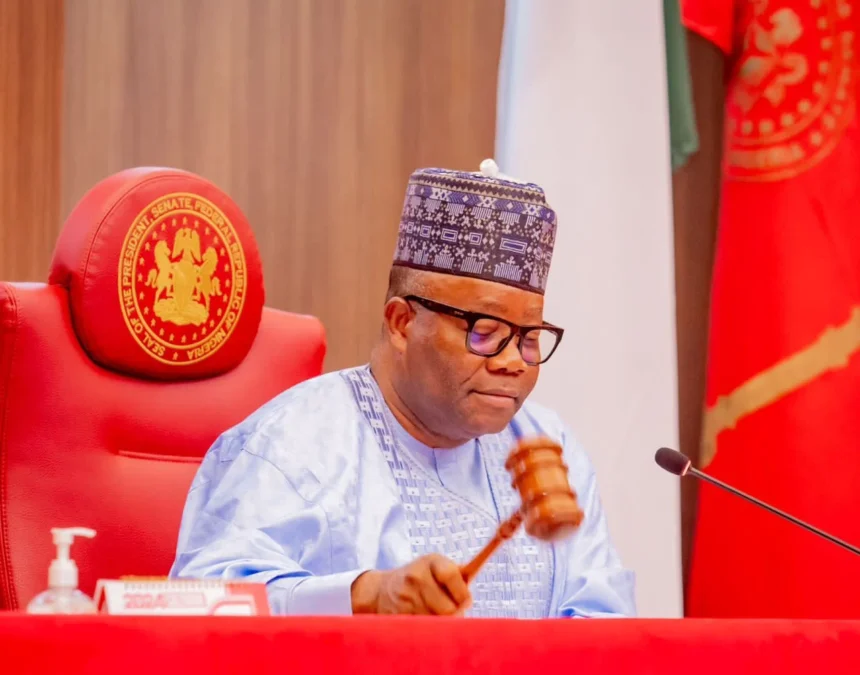The Senate concluded work on the tax reform bills by passing the remaining two bills on Thursday.
The two bills passed for third reading on Thursday were the Joint Revenue Board (Establishment)
Board Bill, 2025; and the Nigeria Tax Bill, 2025.
The Red Chamber had earlier on Wednesday passed the Nigeria Tax Administration Bill, 2025, and the Nigeria Revenue Service Bill, 2025, bringing the total number of tax bills passed to four.
President Bola Tinubu had forwarded the bills to the National Assembly in November 2024 amid controversies that were later resolved through various layers of engagements.
However, the Senate and the House of Representatives will still go into a conference committee to harnonise areas of difference in the bills as passed in the respective chambers before the final drafts are sent to President Tinubu for his signature.
Making his closing remarks on Thursday before the Senate adjourned plenary, the Majority Leader, Sen. Opeyemi Bamidele, recounted how senators worked extensively on the bills to ensure that the final versions served the interest of Nigeria and not individuals, as had been speculated in certain quarters.
He said while the Senate would not beg for praise for its efforts, it must also state clearly that it was not out to be a rubber stamp to the executive.
Bamidele disclosed how the Senate held 39 engagements across board to fine-tune the bills to address all the initial grey areas.
ALSO READ: ‘Tax reform bills will lower materials’ costs in construction sector’
He added, “Thirty-nine different engagements were held on these bills from across various sectors.
“It was meant to give thoroughness to the bills and bring out the best to serve the nation.
“We are not here to grandstand or to portray ourselves as a rubber stamp parliament.”
The Joint Revenue Board (Establishment) Bill, 2025, which has 63 clauses, primarily establishes the Joint Revenue Board (JRB) to replace the existing Joint Tax Board.
It is meant to enhance cooperation and harmonisation of tax administration between the three tiers of government, federal, state, and local governments in the country.
There is also the establishment of a Tax Appeal Tribunal for resolving tax-related disputes, continuing the functions previously under the Federal Inland Revenue Service (FIRS) Act.
The bill creates the Office of the Tax Ombudsman to protect taxpayers’ rights and ensure simplification and fairness in tax administration.
It also seeks to streamline tax administration, increase intergovernmental cooperation, and introduce new mechanisms for dispute resolution to create a fairer, more consistent tax environment.
In addition, the bill “supports collaboration between federal and sub national tax authorities, including assistance by the Nigeria Revenue Service (NRS) to states and local governments in tax collection where legally authorised.”
ALSO READ TOP STORIES FROM NIGERIAN TRIBUNE
WATCH TOP VIDEOS FROM NIGERIAN TRIBUNE TV
- Relationship Hangout: Public vs Private Proposals – Which Truly Wins in Love?
- “No” Is a Complete Sentence: Why You Should Stop Feeling Guilty
- Relationship Hangout: Friendship Talk 2025 – How to Be a Good Friend & Big Questions on Friendship
- Police Overpower Armed Robbers in Ibadan After Fierce Struggle






